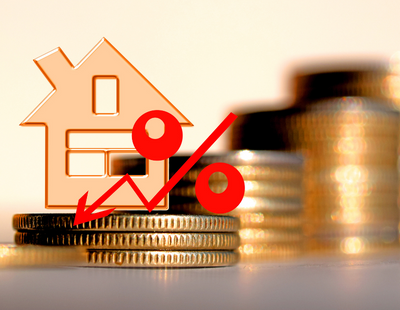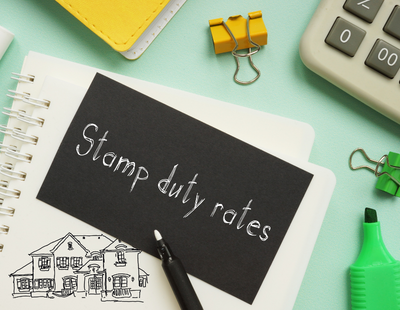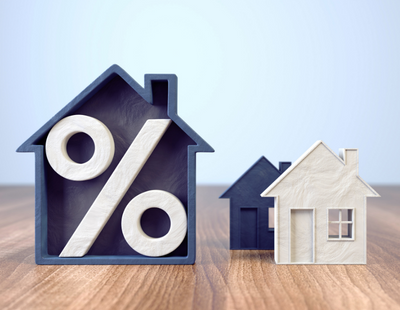Growth has also slowed annually from 9.3% in December to 6.3% in January, putting average prices at £289,819.
It is the third consecutive month that average house price growth has slowed annually, according to Land Registry data.
Average prices fell in most UK regions on a monthly basis, with the largest falls in the North West and Yorkshire and Humber at 2.4% and 2.5% respectively.
Annual house price inflation was highest in the North East though, where prices increased by 10.0% in the 12 months to January 2023.
The lowest annual inflation was in Scotland, where prices increased by 1.%.
London was the English region with the lowest annual growth, with prices up 3.2% annually in January the 12 months to January 2023.
Commeting on the data, Karen Noye, mortgage expert at Quilter, said: “The ongoing cost of living crisis and increased energy bills have had a significant impact on the housing market, as did the fallout of the ill-fated mini Budget, but the market has so far been more buoyant than predicted. While we have seen a dip in prices in recent months, the dramatic fall that had been rumoured is yet to materialise and the slightly more stable mortgage market could see it held off for the time being.
“However, the current economic circumstances mean we are unable to rule out further turbulence in the housing market.”She highlighted UK inflation data unexpectedly rising yesterday to 10.4%, adding: “This leaves the Bank of England in a difficult position as it may not yet be able to press pause on rate hikes, though positively for house buyers fixed-rate mortgages are likely to continue on their downward trend even if the Bank does opt to raise rates further.
“What’s more, in February 2023 UK residential property transactions saw a significant drop of 18% compared to the same month last year and a further decline of 4% from the previous month. For now, the lack of transactions in the market will have a material impact on house prices, pushing them downwards as sellers compete for buyers – reversing how the market has operated over the last few years.”
Estate agents remain bullish despite the price drops.
Emily Williams, director of residential research at Savills, said: “Some markets continue to outperform. The North East saw a slight increase in average values between December 2022 and January 2023, reflecting the region’s limited exposure to mortgage affordability pressures. Savills expects regions furthest from London, and cash and equity rich markets which are least reliant on borrowing to be the strongest performers over the next five years.
“The data is also starting to show the challenges first-time buyers are facing due to rising borrowing costs. The average price paid by first-time buyers fell by 1.5% between December and January, but values paid by home movers, who have been able to build up equity through the strong price growth in 2020-2022 and can therefore borrow at lower loan to income ratios, saw a much smaller fall.”
Nick Leeming, chairman of Jackson-Stops, said: “Much of this data reflects the fallout from Autumn's Trussonomics, where now, as we move into the spring, we are seeing a much more healthy market with more listings as well as buyers, as people renew their search after putting purchases on hold for longer than usual at the end of last year. Resilience is the new buzz word for housing, with what could be a surprisingly bright summer ahead.
“Sellers have benefited from unprecedented levels of house price growth in recent years and even as this pace softens, low housing stock and stabilising mortgage rates are likely to insulate prices for the foreseeable future.”
Nathan Emerson, chief executive of Propertymark, added: “Estate agents have seen an increase in homes coming onto the market which has bought buyers out of the woodwork and increased the number of potential buyers registering in branch.
“Most properties are sticking on the market for longer, feeling similar to 2019 and interestingly, the viewing to sale ratio has increased meaning on average, less viewings are needed per home in order to sell."
















.png)


.jpg)
.jpg)





%20-%20IMAGE%20Client%20Accounting%20%E2%80%93%20what%20are%20your%20options.jpg)


.png)
.png)
.png)
%20(002).png)






%20(002).jpg)



.png)




Join the conversation
Jump to latest comment and add your reply
I for one am not bullish about house prices in my area, great care needs to be taken by FTB's IMO if they are thinking of buying now. Timing is one of the most important elements when buying. We are still seeing some agents over valuing to gain instructions, one would hope lessons would be learnt from the fall out at D&G but seemingly this is unlikely. You only have to see the number of price reductions in SW11 to see the extent of the problem and which firms I am talking about.
Prices never drop in my area ha ha ha ha. (Typical vendor).
Yes my house will sell quickly (in new build sales offices)
My patch of the north-west is rather stuck in the doldrums at present. Supply has increased significantly in recent months, but demand has tailed off. Prices are falling gradually, but sellers are reluctant to take this step - it's only the market for flats that is being discounted appreciably.
The flat market is difficult. FTB's are thin on the ground and correctly priced property difficult to obtain. I find it interesting to view agents websites who say things are going well only then to see the number of properties they have hanging around along with a lot of reduced stock. I am the an optimist at heart but I am fed up with the utter rubbish some agents talk. Vendors and buyers would hold agents in a better light if they gave the facts and priced correctly.
Please login to comment